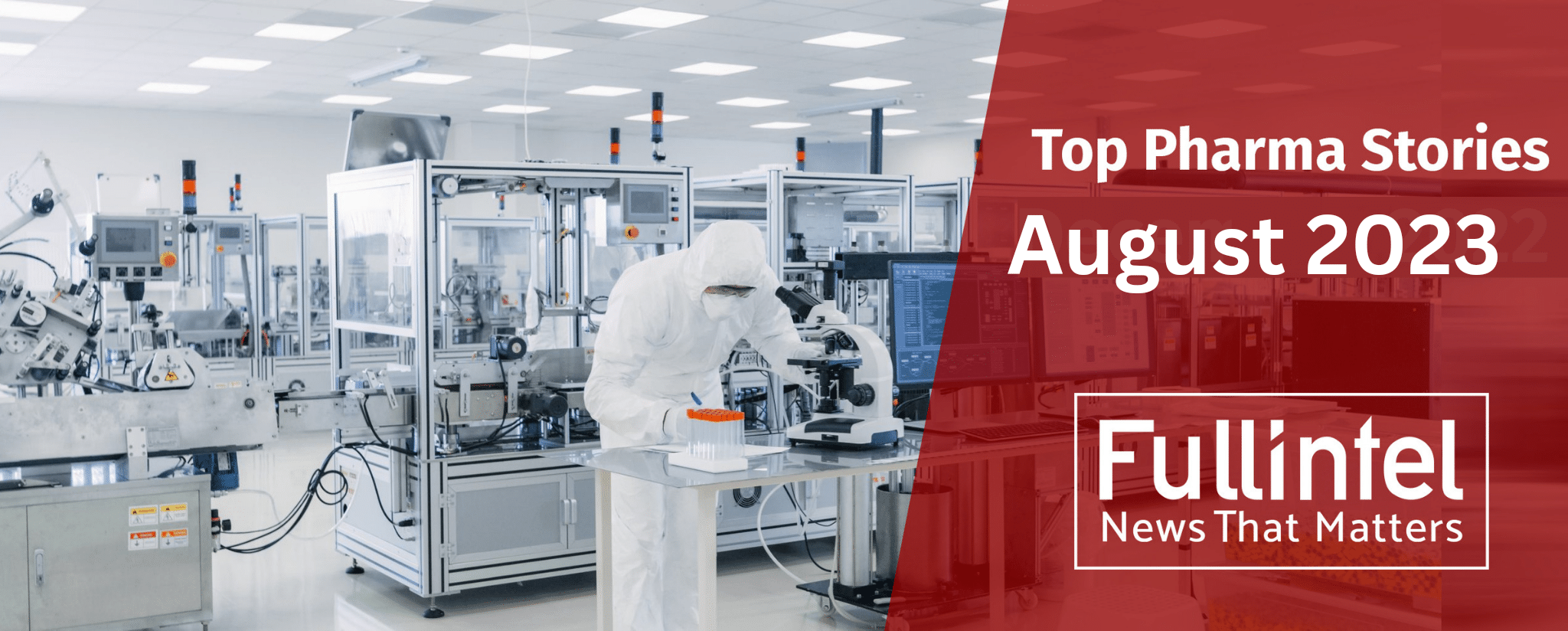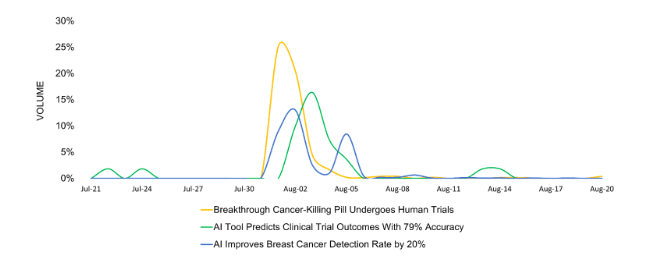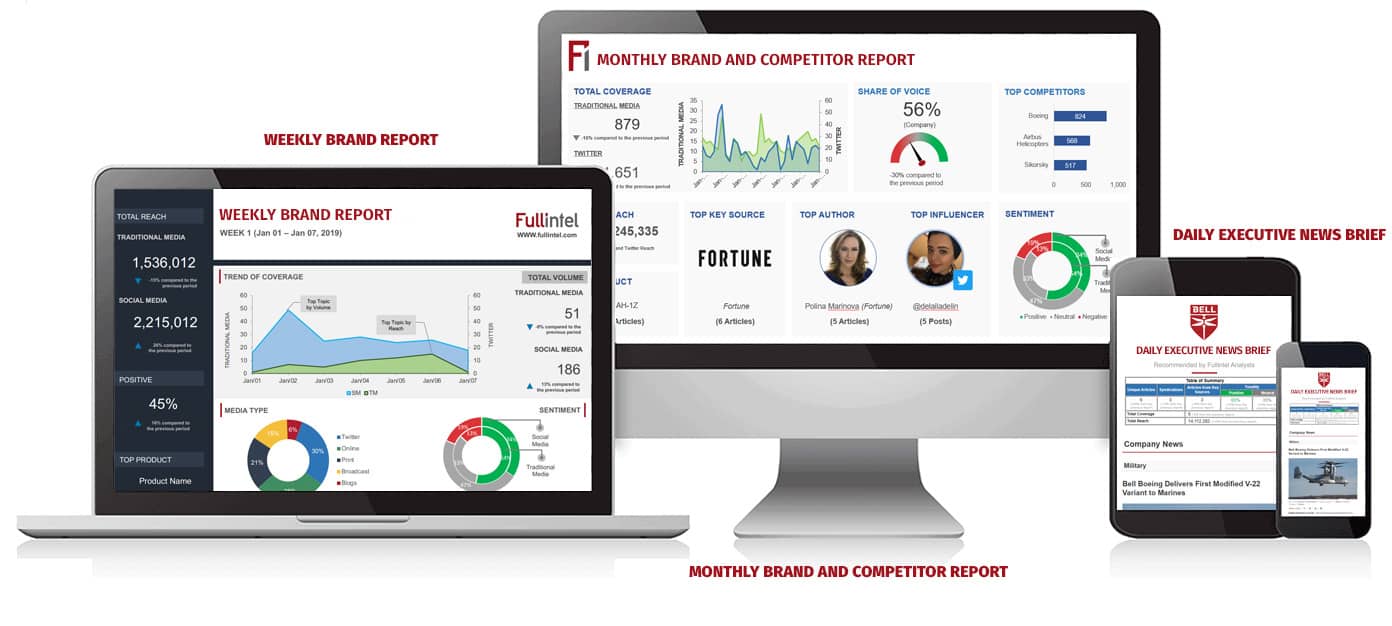
AI’s Integration with Medicine Transforming Cancer Therapies Capture Widespread Media Attention
At the intersection of medical research and AI technology, advancements are taking shape that could revolutionize our approach to treating cancer. These breakthroughs range from revolutionary treatment modalities to the predictive and diagnostic capabilities of artificial intelligence (AI). This convergence of technology and medicine signals the evolution of treatment methodologies and a potential paradigm shift in early detection and efficient research processes. A deeper exploration of these concepts offers a comprehensive view of their cumulative impact on the future healthcare landscape. In the ever-evolving realms of medical research and technological innovation, the Fullintel Hub stands out as a leading platform, consistently recognized for its influence and expertise in capturing the latest trends and updates in the pharma sector by pulling content from a spectrum of media channels. With its precise metrics and in-depth analysis, it equips pharmaceutical professionals to understand market dynamics, make well-informed decisions, and adeptly navigate the intricate landscape of the pharmaceutical industry.
Let’s take a closer look at three top news stories of the month that highlight these innovations.
- Breakthrough Cancer-Killing Pill Undergoes Human Trials
- AI Tool Predicts Clinical Trial Outcomes with 79% Accuracy
- AI Improves Breast Cancer Detection Rate by 20%
August’s Top Stories:
Revolutionary Cancer Pill and AI Innovations in Pharma Dominate Media Conversations

In the first week of August, the media was abuzz with three significant news stories that caught the attention of the general public and industry experts alike. These stories spotlighted a revolutionary human trial for a cancer-fighting pill, an AI tool boasting a 79% accuracy in predicting clinical trial outcomes, and a 20% increase in breast cancer detection rates attributed to AI.
At the intersection of medical research and AI, innovative advances are reshaping the battle against cancer. A groundbreaking pill is currently undergoing human trials, promising to change treatment paradigms. The public eagerly awaits its potential impact, heralding a shift in treatment approaches. Concurrently, an AI tool sets benchmarks by forecasting clinical trial outcomes with 79% accuracy. Such a tool stands to streamline research, offering specialists a faster and more cost-efficient path to trial completion. The significant 20% improvement in breast cancer detection via AI underscores its pivotal role in early diagnosis, auguring better patients’ survival chances. Collectively, these scientific breakthroughs contribute to 5% of the month’s total pharmaceutical media coverage.

A Break-Down of Recent Trending Stories:
Breakthrough Cancer-Killing Pill Undergoes Human Trials
Scientists at the City of Hope Hospital in Los Angeles have introduced a groundbreaking pill, AOH1996, with the potential to eradicate all solid cancer tumors. The drug targets the proliferating cell nuclear antigen (PCNA), a protein prevalent in most cancers that supports their growth and multiplication. Although once considered “undruggable,” the drug has successfully disrupted PCNA in over 70 cancer cell types in lab tests, all while sparing healthy cells—fueling optimism in the medical community. Currently in Phase 1 human trials after two decades of R&D, AOH1996’s ability to target solid tumors and its selectivity in eliminating only cancer cells mark a significant stride forward in cancer research. Social media users welcome this advancement outpouring “Love” reactions. However, the excitement surrounding AOH1996 is tempered by the understanding that the drug is still in its early human trial phases. While lab results have been promising, the drug’s safety in real-world applications remains unverified, eliciting neutral reactions from those keenly awaiting its wider use. The press release’s debut and its subsequent syndications reached a peak trending score on August 1 and 2.

AI Tool Predicts Clinical Trial Outcomes with 79% Accuracy
Insilico Medicine is making waves again, following last month’s buzz about its AI-generated drug. The spotlight is now on the company’s proprietary AI tool, inClinico, which boasts an impressive 79% accuracy in predicting outcomes for Phase 2 to Phase 3 clinical trials. Using transformer-based AI models trained on a comprehensive dataset of 55,600 Phase 2 trials, it addresses the longstanding challenge of drug development, where about 90% of clinical trials falter due to efficacy and toxicity concerns. The tool’s success highlights AI’s transformative potential to revolutionize drug development, directing decisions, and conserving resources. This remarkable advancement elicited enthusiastic “Wow” and “Love” responses from captivated readers. Meanwhile, the company reported a 35% return on investment over nine months for virtual trading portfolio investors. On a neutral note, while inClinico is available for pilots and collaborations across diverse sectors, showcasing its extensive potential, its effectiveness in each area awaits further validation. Though inClinico offers groundbreaking possibilities for industry experts, its intricate details might elude the general public, possibly explaining the lower social engagement on this story despite its high trending status.

AI Improves Breast Cancer Detection Rate by 20%
Artificial intelligence is making advances in breast cancer detection, surpassing the results of conventional radiologist screenings. A Swedish trial involving over 80,000 women showed that incorporating AI assistance in mammogram analyses, in conjunction with radiologists, led to a 20% boost in cancer detection. This is equivalent to detecting an additional cancer case for every 1,000 women screened. Moreover, AI alleviated the radiologists’ workload by 44%, suggesting the possibility of faster screenings and reduced patient wait times. This breakthrough garners “Wow” reactions across social media platforms. However, some experts voice concerns about AI’s tendency to over-identify benign lesions, particularly noting its higher detection of in situ carcinomas. Such concerns have triggered a 1% negative sentiment and some “Angry” reactions, primarily from individuals apprehensive about the implications of overdiagnosis. The study underscores ongoing debates around AI’s place in healthcare, asserting that widespread clinical integration demands exhaustive research and validation, emphasizing that interim safety results alone are inadequate to confirm AI’s readiness for mammography screening implementation. The release of this study and its subsequent media pickups achieved the highest trending score of 5 on August 2.




